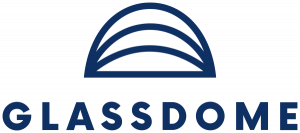Glassdome Earns Catena-X Certification for Product Carbon Footprint Solution
Glassdome empowers automotive players amid tightening climate regulations as only the second solution certified globally on Catena-X
Spearheaded by OEMs such as Ford, BMW, Mercedes-Benz, and Volkswagen, Catena-X is working to establish a unified framework for sharing product and carbon-related data across the automotive value chain. Service providers certified under the Catena-X framework offer a solution that provides verifiable, standardized carbon data aligned with the growing demands of regulatory bodies and global original equipment manufacturers (OEMs).
Glassdome provides comprehensive PCF calculations and collaborates closely with automotive manufacturers and suppliers in Europe and South Korea. The company’s life cycle assessment (LCA) solution is ISO 14067-compliant and offers real-time integration with MES, ERP, and other enterprise systems, as well as a scalable, cloud-based architecture. Glassdome’s capabilities enable precise, transparent PCF reporting that can be deployed flexibly across industries and supply chain tiers, helping stakeholders throughout the supply chain comply with increasingly stringent carbon reporting requirements.
Reporting requirements and regulations continue to pose a challenge for many companies in the automotive value chain. The EU Batteries Regulation will soon introduce declaration requirements, performance classes, and maximum limits on the carbon footprint of electric vehicles and rechargeable industrial batteries. As a member of the Global Battery Alliance’s Digital Battery Passport pilot, Glassdome is collaborating with other industry players to develop solutions that provide comprehensive disclosures necessary to comply with EU regulations.
“The Catena-X certification of Glassdome demonstrates once again that our technology can enable automotive manufacturers to meet global carbon regulations,” said Tae Jin “TJ” Yoon, Managing Director of Glassdome GmbH. “We’re committed to helping global automotive manufacturers and suppliers strengthen their carbon competitiveness as international regulations become more demanding.”
Glassdome has recently opened an office in Munich, enabling the company to work more closely with European manufacturers and Korean suppliers seeking to expand their presence in the European market. The company further announced a new partnership with Siemens in December 2024 to simplify the product carbon footprint (PCF) assessment process for manufacturers.
About Glassdome
Glassdome is an industrial software company with expertise in acquiring and analyzing data from manufacturing equipment. Glassdome utilizes a SaaS-based solution to guide manufacturers from data collection to monitoring and ongoing reporting, enabling them to collect data from machines, transfer it to software, and access it. We empower manufacturers within the EV battery, chemical, pharmaceutical, and food and beverage industries to capture the untapped potential of data throughout the supply chain to achieve continuous operational efficiency improvement and meet regulatory, environmental and emissions compliance.
Founded in 2019 with deep roots in Silicon Valley and Korea, Glassdome is perfectly positioned to serve manufacturers that want to improve efficiency and meet or exceed green regulation requirements in one platform. Follow Glassdome on LinkedIn or learn more at https://glassdome.com.
Mindy Hull
Mercury Global Partners for Glassdome
+1 415-889-9977
email us here
Visit us on social media:
LinkedIn
Instagram
X
Legal Disclaimer:
EIN Presswire provides this news content "as is" without warranty of any kind. We do not accept any responsibility or liability for the accuracy, content, images, videos, licenses, completeness, legality, or reliability of the information contained in this article. If you have any complaints or copyright issues related to this article, kindly contact the author above.
Mark McManus of M&M Construction Specialist Shares Expert Advice on Historic Home Renovation in HelloNation Magazine
Organic Foods Market to Reach USD 710.1 Million by 2035 as Health-Conscious Consumers Drive Demand for Nutrition
Society 18, BGD Media, and Black Menswear Unite to Present 'Culture on the Croisette' Mixer at Cannes Lions 2025
Kalendarium
Więcej ważnych informacji
 Jedynka Newserii
Jedynka Newserii

 Jedynka Newserii
Jedynka Newserii

Ochrona środowiska

Ostateczny kształt rozszerzonej odpowiedzialności producenta wciąż pod znakiem zapytania. Przykładem dla Polski mogą być rozwiązania z Czech czy Belgii
Zgodnie z wytycznymi Unii Europejskiej do końca 2025 roku Polska powinna osiągnąć poziom recyklingu odpadów opakowaniowych na poziomie min. 65 proc. Trudno to osiągnąć bez wdrożenia systemu rozszerzonej odpowiedzialności producenta (ROP), który w świetle unijnych zaleceń powinien być zaimplementowany już w 2023 roku, a którego ostatecznego kształtu jeszcze nie znamy. Zagraniczni eksperci uważają, że Polska powinna iść w ślady Czech, Belgii i Włoch, stawiając na elastyczną organizację odpowiedzialności producenta (OOP).
Handel
Prof. G. Kołodko: Trump osiągnie efekt odwrotny od zamierzonego i spowolni rozwój Ameryki. Na wojnie handlowej z resztą świata to Stany mogą tracić najmocniej

– Liczne decyzje prezydenta Trumpa, nie tylko na polu ekonomicznym, są po prostu oparte na nieracjonalnych przesłankach, są fałszywe, są szkodliwe i dla Stanów Zjednoczonych, i dla innych, mówiąc językiem popularnym, są chore – ocenia prof. Grzegorz Kołodko, były minister finansów, i wskazuje m.in. na chaos spowodowany wprowadzaniem, zawieszaniem i przywracaniem ceł. Ekonomista w książce „Trump 2.0. Rewolucja chorego rozsądku” analizuje trumponomikę, a więc ekonomię i politykę gospodarczą pomysłu prezydenta oraz jej wpływ na gospodarkę, przestrzega przed zagrożeniami i wskazuje sposoby wyjścia z nasilającego się globalnego zamieszania. Autor ocenia też negatywnie pozaekonomiczne aspekty działalności amerykańskiego prezydenta z wyjątkiem jednego aspektu.
Farmacja
Samoleczenie generuje w UE oszczędności na poziomie 40 mld euro rocznie. Dzięki temu odciążone są europejskie systemy zdrowotne

Każdego roku Europejczycy leczą samodzielnie ok. 1,2 mld drobnych dolegliwości, w tym przeziębienie czy niestrawność. Zdaniem ekspertów wzmocnienie tych kompetencji społeczeństwa może być remedium na braki kadrowe w opiece zdrowotnej i jej deficyt budżetowy. Sięganie po leki bez recepty (OTC), suplementy diety i wyroby lecznicze pozwala uniknąć ok. 120 mln konsultacji lekarskich w skali roku, co odpowiada pracy nawet 36 tys. lekarzy pierwszego kontaktu. Samoleczenie generuje w UE oszczędności na poziomie 40 mld euro rocznie – wynika z danych przedstawionych podczas 61. konferencji AESGP, która odbyła się w Warszawie.
Partner serwisu
Szkolenia

Akademia Newserii
Akademia Newserii to projekt, w ramach którego najlepsi polscy dziennikarze biznesowi, giełdowi oraz lifestylowi, a także szkoleniowcy z wieloletnim doświadczeniem dzielą się swoją wiedzą nt. pracy z mediami.










.gif)

 |
| |
| |
|